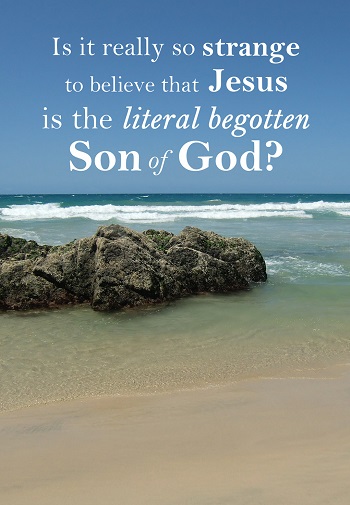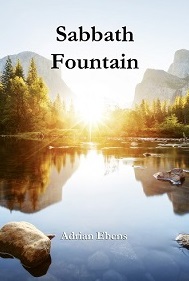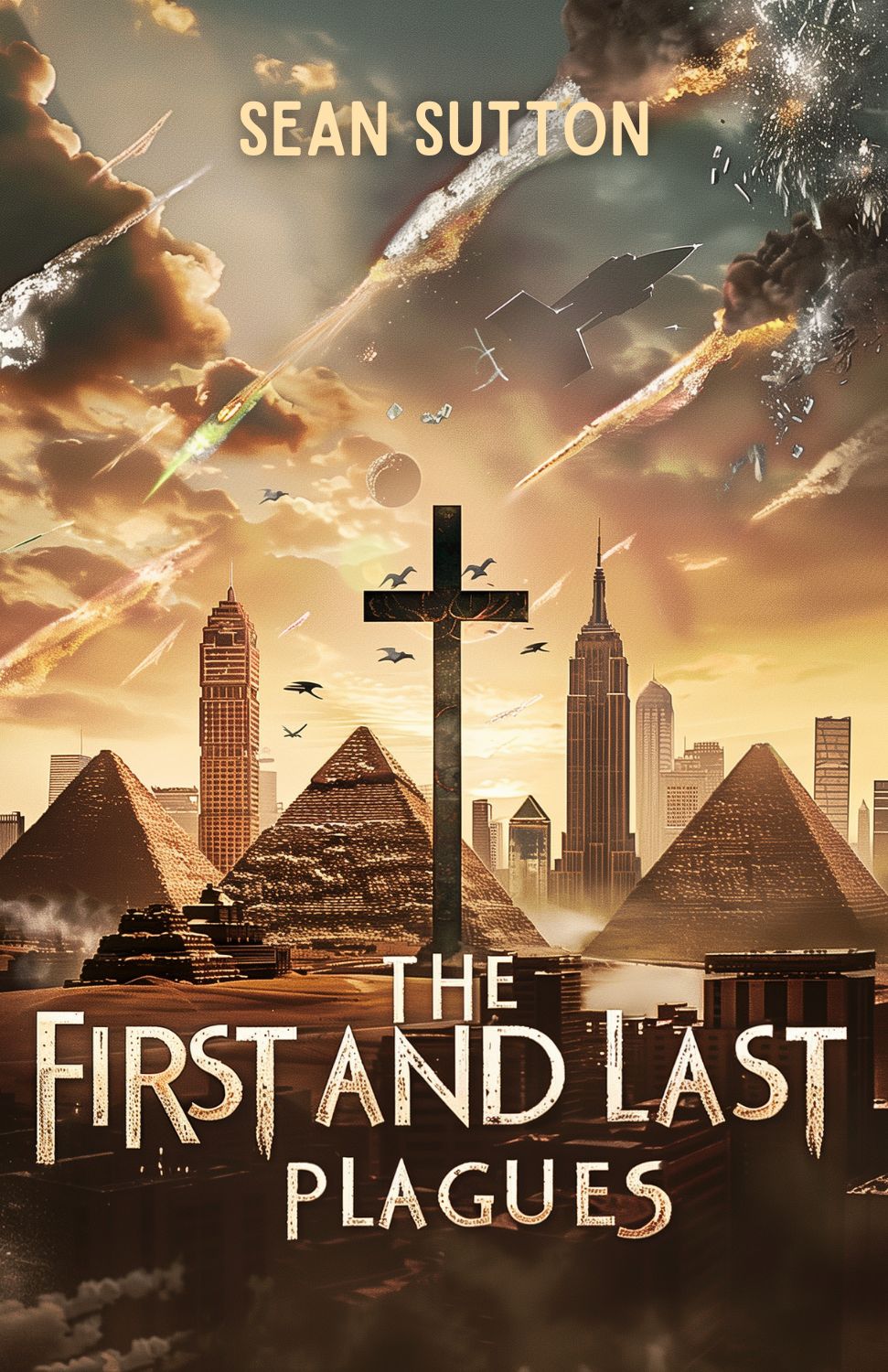Making Sense of the Apparent Dichotomy In God's Character
This is an added section to my recent South Bank Mission Report # 4 blog article subtitled "AMAZING GRACE" - "Eternal Torment" Dichotomy. It defines the nature of God's eternal fire in connection to the 3rd Angel's message. You might want to read the original article to get some further context.
Making Sense of the Apparent Dichotomy In God's Character
Updated Version
This study is an attempt to show what "hell" is really like. You will see that the picture we hold in our mind concerning hell and how God deals with sinners, makes all the difference in the world to as how we view God and how people feel about Him.
First we'll consider a majestic side of God, that is seldom thought about, in connection with His people.
God is a relational Being, He is a person but there is another side to Him. God's glory, presence and very NATURE are as "a consuming fire" because, don't miss this, our God Himself "IS" "a consuming fire" (Hebrews 12:29). Consider the nature of God's fiery mobile throne-room and His angel, cherubim and seraphim messengers in Eze 1:13-28 and Daniel 7:9,10). Furthermore, in Malachi, Jesus is referred to as "the Sun of righteousness" - not in an all-consuming destructive sense but in the context of life-giving healing grace and in the warmth of His love which enables us to grow and flourish spiritually (Mal 4:2). He is our light and our protection and He is good. "For the Lord God is a sun and a shield: the Lord will give grace and glory: no good thing will He withold from them that walk uprightly" (Psalm 84:11). The Son of God/Sun of righteousness is "the [spiritual] light of the world" (John 8:5, 9:12; John 1:1-12) and His children who compelled by His grace "turn many righteousness", will shine with Him in the kingdom "as the stars [suns] for ever and ever" (Daniel 12:3) and there will be a literal application to this. There will be an actual bright and shinning radiance to the redeemed as there is with the angels and the glorified Christ - our anointed Priest-King. (Matt 22:30; Matt 28:2,3; Acts 9:3-5; Rev 1:13-17; 1 John 3:2). Again, in a spiritual sense, Jesus referred to His followers on earth as "the [spiritual] light of the world" Mat 5:14: (See also Eph 5:8; 1 Thess 5:5; 1 Pet 2:9). There will however, come a time when the children of the kingdom shall be "as the angels" in bright and radiant appearance. I guess that's why Newton wrote in his song, "When we’ve been there ten thousand years, Bright shining as the sun,……”.
We will soon see the truth of the matter, concerning the PRIMARY source of "fire and brimstone" and "the flames of a real hell", (the glorious Father and "shining" Son - the "Sun" of righteousness") and that this was included in the man's tract all along!!! Unfortunately this truth hinted at was muddied and eclipsed by all the other very off-putting stuff in it and likely escaped the notice of most readers. Most readers will be aware that the grossly misunderstood word "hell" actually originates from a Hebrew word 'shehole' meaning: the world of the dead, the pit, the grave!!! In the Greek the word is 'hades' which means the same thing. So hell refers to the grave and death, which is the ultimate separation from God. So there are flames of some kind surrounding God and there most certainly will be flames that will consume the unrepentant at the last day, however there is no such thing as "the flames of a real hell" (as was phrased in the "Amazing Grace" tract) because flames do not exist in death because flames do not exist in people's graves ("hell") !!
Hell = Death which = Grave which = Separation from the God the Father and the "Sun of Righteousness"
Fire and brimstone = The Second Death which = The Wrath of God which = Eternal Separation from our Bright and Glorious God the Father and His Son/Sun of Righteousness.
Answering a Very Common Objection
According to Scripture the "first-fruits" ascended to heaven with Christ after His resurrection (Matt 27:52,53; 1 Cor 15:20) and there are a very few holy men of old (Enoch, Moses and Elijah),who were also translated to heaven (Matt 17:3; Gen 5:24; Heb 11:5). These are exceptions. Aside from this, many verses could be provided here so clearly show there is absolutely zero consciousness at death. Here are just a few of examples: Eze 18:20; Rom 6:23; Psm 37:10; Psm 9:5,6; 115:17; 146:4; Ecc 9:5,6,10; Isa 38:18-19.
Since we touched on the wrath of God and separation, maybe another point needs to be made.
A very common objection to the concept of soul "sleep" or unconsciousness in death, would have to be based on the parable Jesus presented concerning the rich man and Lazarus (Luke 16:19-31). Many Protestants assume, and are quick to point out, that this parable proves that when the righteous die they immediately wing their way to heaven and when the wicked die they go straight to hell (or at least their understanding of hell). They base this assumption upon verses 22 and 23. It reads
"And it ame to pass, that the beggar died, and was carried by the angels to Abraham's bossom: the rich man also died and was buried; And in hell he lift up his eyes, being in torments, and seeth Abraham afar off, and Lazarus in his bosom. And cried and said, Father Abraham, have mercy on me, and send Lazarus that he may dip the tip of his finger in water, and cool my tongue; for I am tormented in this flame" (Luke 16:22-24)
Now firstly we need to ask ourselves a couple of questions.
1) IF we are to take this parable literal then is your picture of heaven a place where the righteous merely lie in Abraham's bosom? Is this our concept of heaven?!
2) IF we are to take this parable literally then do you think the wicked, writhing in pain, are going to have the mental energy or will to pray to "Father Abraham" to have mercy on them? And even more absurd, do you think a drop of water from the tip of Lazarus' finger is possibly going to make any difference to the enormous burning smouldering heat?!!
3) But there is another thing. Did you catch that in this hyperbally, Jesus said "the beggar died" and "the rich man died and was buried". (See verse 30 and 31 also which makes the same point) Hmmmm. That challenges the life immediately after death concept doesn't it?
But the main point I want to now make is found in verse 26. This is a further key to properly understanding this parable. It reads,
"And beside all this, between us and you there is a great gulf fixed: so that they which would pass from hence to you cannot; neither can they pass to us, that would come from thence."
Two things are made clear here. Firstly, whatever our opinion of heaven and hell are, one thing is certain. They are two opposites. Secondly, The two are separated by a "great gulf" which is "fixed" or unchangeable and certain.
Question: What is the great gulf spoken of here? Simple, the great gulf is the gap, difference or separation between life and death!
No, thankfully eternal fire ("everlasting burnings") is not the product or place of a God with a dichotomous mind contradicting His love and mercy. It is not something the Devil has been assigned control over. It is not a place! - It is primarily who God is! Hell (the grave) is a place but eternal fire ("everlasting burnings") is a misrepresented unappreciated person!!!
After the millennium and the final judgment, the pain experienced of being consumed in His glorious bright presence will be "eternal" - or 'as long as life shall last.' In other words, the consequences of cherished unforsaken sin and rejecting God will be eternal. And that will be death. (See Jonah 2:2,6; Jude 1:7; 1 Sam 1:22,28; Ex 21:6; Jer 17:27; Rev 20:10).
"The Wrath of the [Gentle] Lamb"!
It's true that there will be a physical fire on earth, aside from the everlasting bright and burning presence of God at the last day, no question. This fire will consume in a physical sense. Yet this is secondary to the psychological mental and emotional melt-down from the "coals of fire" (burning, shame and conviction) the wicked will experience as the realisation comes to them that they have spurned God's love and grace. Therefore they will be forever separated from Him. Any destructive process measured out upon the unrepentant wicked will be from a heart of infinite mercy and love. However, it's vital for those influenced by, and subject to, the confusion of "Babylon", to eventually realize, that this *wrath is not the wrath of a monster. It is not the wrath or merciless fury of the Devil. It is the wrath of the LAMB!!!! (See Rom 12:20; Rev 6:16). The wrath of the Lamb?!!! Seems like a contradiction doesn't it? What did the Revelator mean by this strange phrase? We need to recognise, our God is an awesome God of extreme power and majesty to be reverenced and feared (Rev 14:6) and yet at the same time He is approachable, tender, gentle, merciful, loving, protective and forgiving. These character traits are fully expressed in His only begotten Son - the divine "express image" (representation) of the Father (Heb 1:3; John 1:18, 14:9; 1 John 1:3; Col 2:9.) Sinners experience burning coals of conviction in His presence, not because He condemns them but because their OWN hearts do (John 3:17; 1John 3:20,21.)
Epic Sacrifice Under the Wrath of God
*Incidentally, the wrath of God according to Scripture is separation from God. Why? Simply because "death" is the ultimate long-term result of being eternally separated from Him. (See Rom 1:18, 24, 26 ,28 and you may notice, God's wrath is defined as handing sinners over to their own destructive ways...."He gave them up"....."gave them over...")
And perhaps what is most astounding and astonishing of all, is the fact that as the divine sin-bearer of the world, Jesus, experienced the "wrath of God, which [was] poured out without mixture into the cup of His indignation"!!! (Amazing!!! To think, far in advance, our Lord underwent the experience contained in the pronouncement of the third angel). This occurred during the monumental Gethsemane and following Calvary ordeals leading to His infinite "Epic Sacrifice"! (Matt 26:42; 27:46). At the close of the "days of His flesh" Christ the only begotten Son of God tasted "death for every man", He drank the bitter cup and experienced divine justice without mixture - without any mingling of mercy!! He actually took upon Himself our guilt, shame and condemnation that "we deserved" and felt as if He was being separated from His Father as He was weighted down by the sin of the world. (Mark 20:22; Mark 14:36; Rev 14:10; 2 Cor 5:21; Heb 2:9). As Dennis alluded to in his comment below, this signifies the fire that roasted the passover lamb and the shew bread (Christ, the Word of God, the "bread of life") which was made from fine flour, heated and beaten and baked in the oven. Both of these figures unquestionably represent Jesus enduring fiery trials an suffering for our redemption! ( Ex 12:8,9; 1 Cor 5:7; Isa 53; Psm 88). He did it all for us!
I guess what I've presented above is what Dennis referred to in his comment in regards to my original Mission report # 4. This subject and proper explanation of eternal fire is indeed part of the third angel's message - Christ and His righteousness offered to us as the greatest gift God can give. This needs to be proclaimed world-wide in order to call people out of Babylon to help them recognise God's character has been grossly misrepresented and to prevent yet others from picturing God as a tyrannical being of stern justice He is not and consequently inwardly or openly resenting or despising Him.
When God Took the Little Girl's Photograph
Now for the main point that explains what "the flames of a real Hell" is.
From yet another angle we see the part so often overlooked in Scripture. "Fire" is not only associated with the obvious (intolerable heat, burning, suffering, annihilation, destruction.....) but represents God's "unquenchable" love that many waters or floods cannot drown! (Psm 39:3; Song 8:7). The immense power associated with the Sun and lightening, both creations of God belonging to Him and under His control (Job 37:3), show us something of the degree and intensity of His love. See for example Song of Solomon 8:6; Isaiah 33:14,15; Psalm 50:3. Yet God's people are at perfect peace and rest in His care in the midst of His unseen presence or these visible attributes of His. It reminds me of the story of a loving father and his little girl during an intense thunder storm one night. The lightning fell, the thunder crackled and cracked loudly outside even shaking the house. The father ran quickly up stairs to see if his little girl was alright. As he burst into her room, to his wonder and surprise, he saw her spread-eagle with her face pressed up against the window!. As the lightning flickered outside lighting up her room he cried "Are you ok sweet heart?!! - What are you doing?! As if in her own little world she responded by saying "I think that's God outside and he wants to take my photograph!!!"
Psalm 50:3 implicates that there'll be people at the last day that WILL joyously and comfortably "dwell" in the presence of "devouring fire" and "everlasting burnings" (lightnings etc.). It is actually God's people who will dwell in His burning presence. And I might add, the wicked will not dwell, or writhe, at least for too long, in that presence of either - they will be totally consumed, completely "burned up" along with the devil and his angels. See Matt 25:41. This TOTAL annihilation is referred to as the "second death" Rev 20:10,14 because, like Babylon, they will 'perish' and "shall be found no more at all" Rev 18:21; 19:20. See John 3:16,17.
The victorious 144,000 stand on a sea of glass mingled with fire (Rev 4:6;15:2). Have you wondered what the Revelator might be implying by this? (I have some thoughts on this) but I'll leave those verses with the reader to contemplate.
I would like to repeat, everlasting burnings is not a place but a person of unquenchable passion and love. God's children are as calm and peaceful in His majestic presence as was the little girl when the lightning was crashing and thundering down. That's one reason why during those ten thousand years, 'with no less days to sing God's praise bright shining as the sun' the redeemed of all ages will know "truly" their fellowship was and will ever be "with the Father, and His Son Jesus Christ."
And like the little girl being 'photographed', they will be enraptured by the thought of being the object and attention of God's adoration and unquenchable love.




